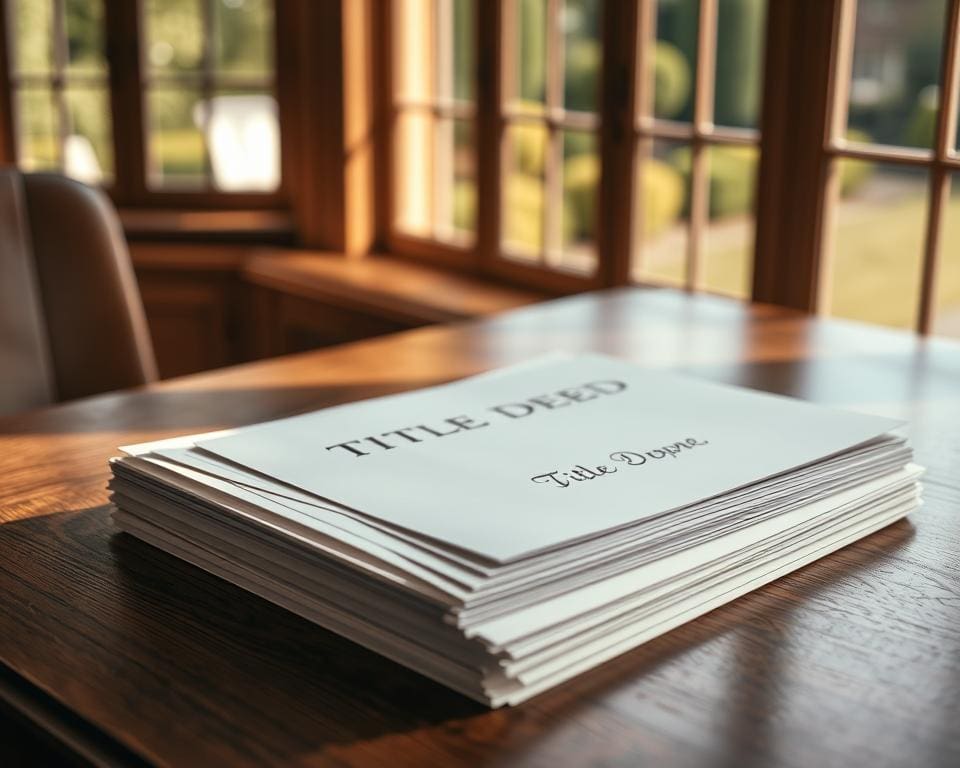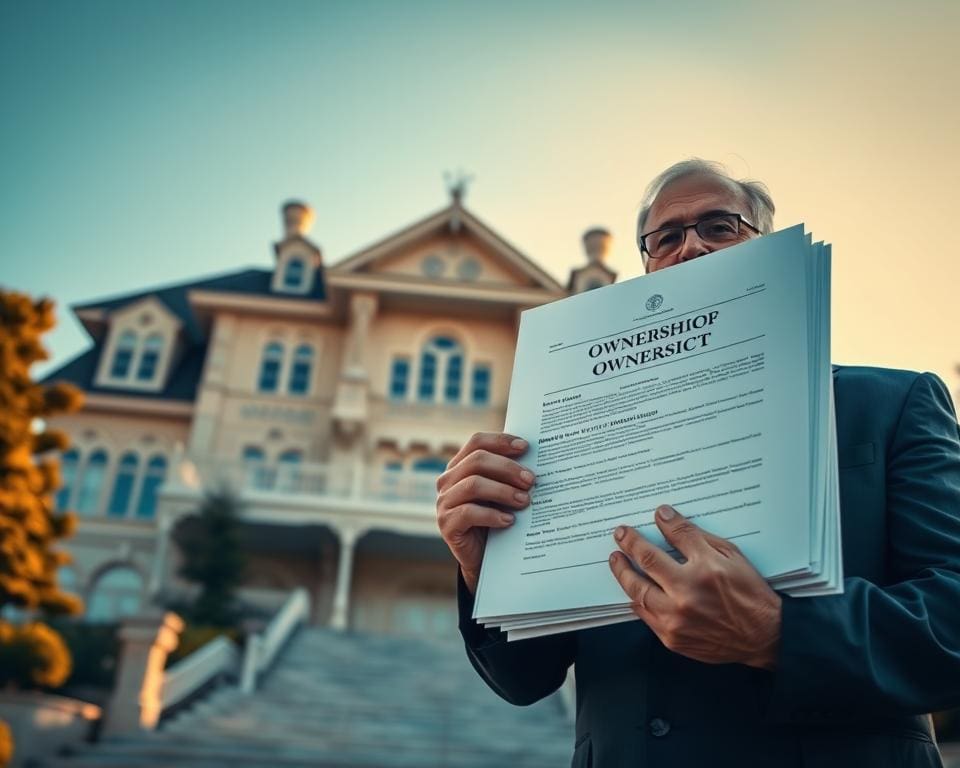Understanding who owns the deeds to a house is essential for anyone navigating the world of property ownership. The title deeds represent not merely a document, but the cornerstone of legal rights and responsibilities associated with property ownership. Being aware of who holds the house deeds can offer clarity to prospective buyers, sellers, and even current homeowners, positioning them to make informed decisions about their real estate. As we delve deeper into the intricacies of property ownership, we will explore the significance of title deeds and how they define the rights of the house deed holder in the context of property law.
Understanding Property Ownership
Property ownership represents a significant aspect of wealth and security in society. To fully grasp the concept of property ownership, it is essential to explore the definitions of legal ownership and the pivotal role of title deeds.
Defining Legal Ownership of Property
The legal owner of property holds the official rights associated with the estate, providing a clear distinction in property ownership. Ownership can be classified into registered and beneficial forms. Registered ownership indicates that the individual’s name appears on the official land registry, signifying that they are recognised as the legal owner. Beneficial ownership, however, may differ as the individual exercises rights over the property despite not being listed as the owner on the title deeds. This distinction is crucial for understanding who has the rightful claims to the property.
The Importance of Title Deeds
Title deeds function as critical documents in establishing ownership, serving as proof of property rights. These records outline the specifics of the property, including boundaries, rights of way, and any covenants that might apply. In real estate transactions, title deeds play an indispensable role, ensuring that the legal owner of property can confidently enforce their rights against third parties. Without these documents, genuinely asserting property ownership becomes increasingly complex, underscoring their significance in maintaining legal clarity and security.

Who Owns The Deeds To A House
Determining who owns the deeds to a house is crucial for anyone considering property transactions. House ownership verification provides peace of mind by confirming the rightful owner. This process can be straightforward with the right resources and attention to detail.
How to Verify House Ownership
To initiate house ownership verification, one may begin by checking the Land Registry in the United Kingdom. This official record holds vital information about property ownership, offering insights into who owns the deeds to a house.
- Gather key details, including the full address of the property and any known historical owners.
- Visit the Land Registry website or office to request ownership information.
- Provide the required details, ensuring accuracy to avoid delays in obtaining information.
The implications of verifying house ownership extend beyond mere interest. This process safeguards potential buyers from disputes and ensures the authenticity of ownership, fostering confidence in any property transaction.
Transfer of Property Ownership
Transferring property ownership is a significant step in any property transaction. This process not only involves procedural steps but also requires a keen understanding of various legal considerations in property transfer. Knowing how to effectively navigate this process can lead to a smoother experience for all parties involved.
The Process of Transferring Title Deeds
The first step in the transfer of property ownership includes drafting a contract that outlines all terms agreed upon by the buyer and the seller. Following this, conducting comprehensive property searches is essential to ensure that the property is free from any encumbrances or legal issues. Completing these checks builds a solid foundation for the transfer process.
Once the property is clear, the next crucial step is registering the title deeds with the Land Registry. This official registration is necessary to formalise the transfer and protect the rights of the new owner. Missing this step could lead to complications in future ownership claims.
Legal Considerations in Property Transfer
As one embarks on the transfer of property ownership, it is vital to keep in mind various legal considerations in property transfer. Tax implications may arise during and after the transfer, hence consulting a tax professional or solicitor is advisable.
Moreover, obtaining necessary surveys and property certificates ensures that the property is in good standing. Failing to attend to these legal requirements can result in undesirable ramifications, including potential financial loss or legal disputes.
Understanding these processes and considerations allows for a more informed and confident approach to transferring property ownership. The journey might seem complex, yet being informed paves the way for a successful transaction.
Property Documentation Essentials
Understanding the various aspects of property documentation is crucial for anyone looking to assert their rights in the real estate market. A thorough grasp of key documents related to property ownership enables individuals to navigate this intricate landscape with confidence. Proper documentation not only safeguards property rights but also enhances the overall transparency of ownership.
Key Documents Related to Property Ownership
Several fundamental documents constitute the backbone of property ownership. Each piece holds significant importance in affirming and protecting rights associated with a property.
- Title Deeds: These legal documents signify ownership and contain vital details about the property, such as boundaries and any charges against it.
- Property Surveys: Conducted by licensed surveyors, these assessments clarify property lines and structures, ensuring that ownership disputes are minimised.
- Mortgages: This crucial document outlines the loan terms used to purchase the property, detailing repayment conditions and lender rights.
- Property Tax Records: These records not only provide evidence of ownership but also ensure compliance with local tax regulations.
- Insurance Policies: Protecting against unforeseen events, these policies help maintain the property’s value and safeguard assets from damage.
Maintaining accurate records of these key documents related to property ownership is essential. Individuals should ensure that all documentation is up to date and securely stored to affirm ownership and protect their interests effectively.
Property Title Rights Explained
Understanding property title rights is essential for any individual seeking to navigate the complexities of home ownership. The house deed holder possesses several legal powers and obligations that are vital for the management and utilisation of the property. This includes the ability to sell, lease, or pass on the property through inheritance, highlighting the importance of clear knowledge regarding these rights.
Different types of ownership, such as freehold and leasehold, come with varied implications for the house deed holder. Freeholders enjoy full ownership rights, allowing them complete control over their property, while leaseholders may face certain restrictions and obligations as outlined by the lease agreement. A solid grasp of these distinctions empowers homeowners to make informed decisions about their property and their responsibilities.
Equipped with an understanding of property title rights, owners are better positioned to protect their investments. They can confidently engage in property transactions, ensuring their rights are respected and safeguarding against potential disputes. Ultimately, recognising the significance of these rights not only fortifies the legal standing of the property owner but also fosters a sense of security and peace of mind about their investment.









